Wildebeest Migration / Wildebeest Crossings / Herdtracker
Wildlife / Safaris / Holidays
Home » Wildebeest River Crossings
What is wildebeest crossing? Wildebeest crossing is an event that happens in Masai Mara Kenya and Serengeti in Tanzania where millions of wildebeests, zebras, and other animals cross the great Mara River in July to October of every year. Different crossings happen in between these months.
There is nowhere in the world you will see such a wonder where millions of animals migrate across plains and rivers, but only in Masai Mara and Serengeti. These migrations of wildebeests start from the South of Serengeti and Ndutu up to Northern Serengeti.
Wildebeest calves born in January to March of every year, grow in height and weight crossing the plains of Serengeti through the Grumeti rivers and all the way to arriving in Northern Serengeti all grown and ready to conquer the challenges of river crossing.
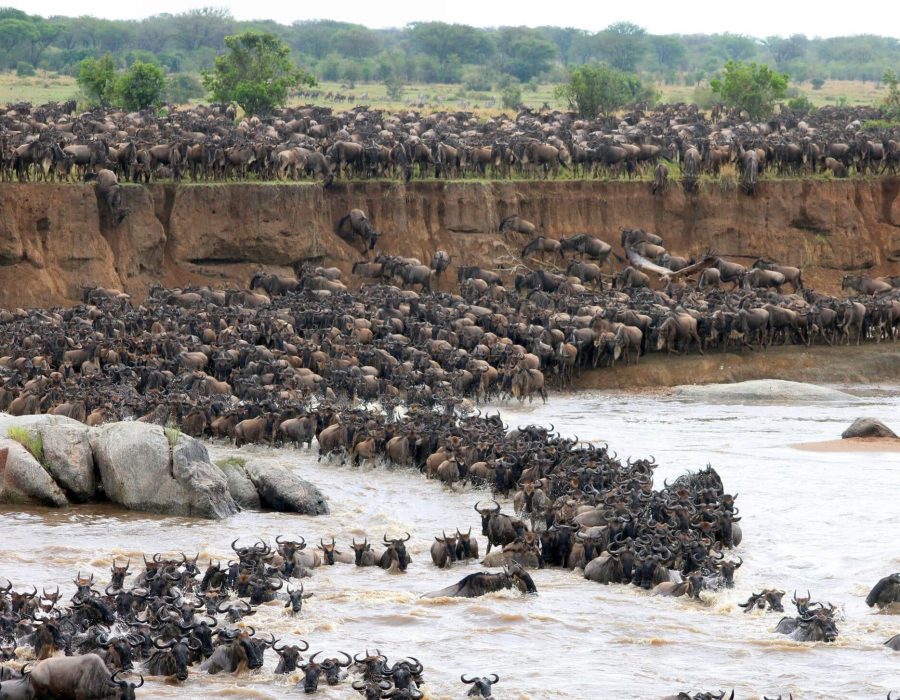
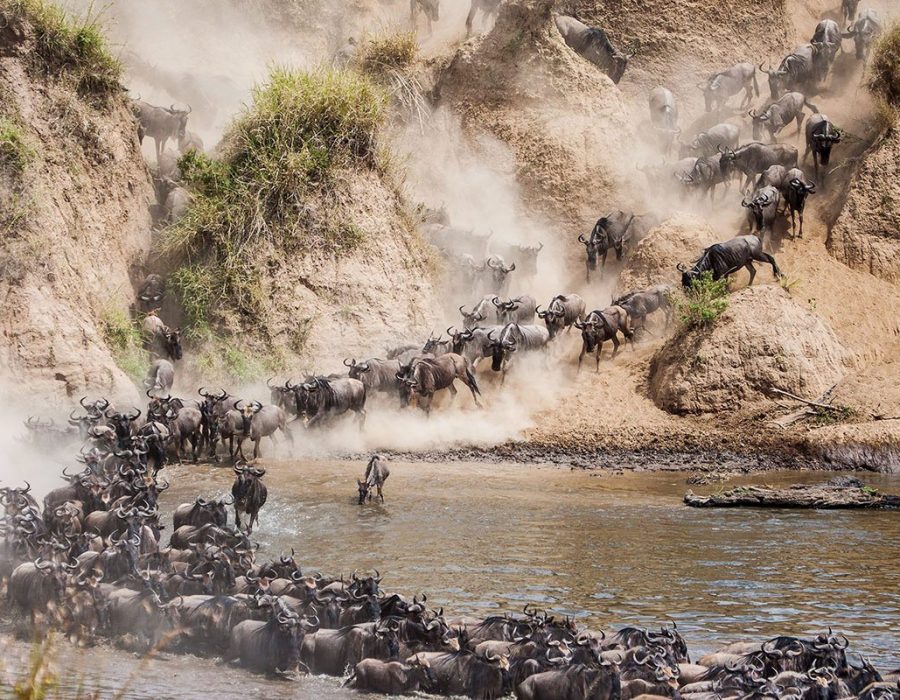
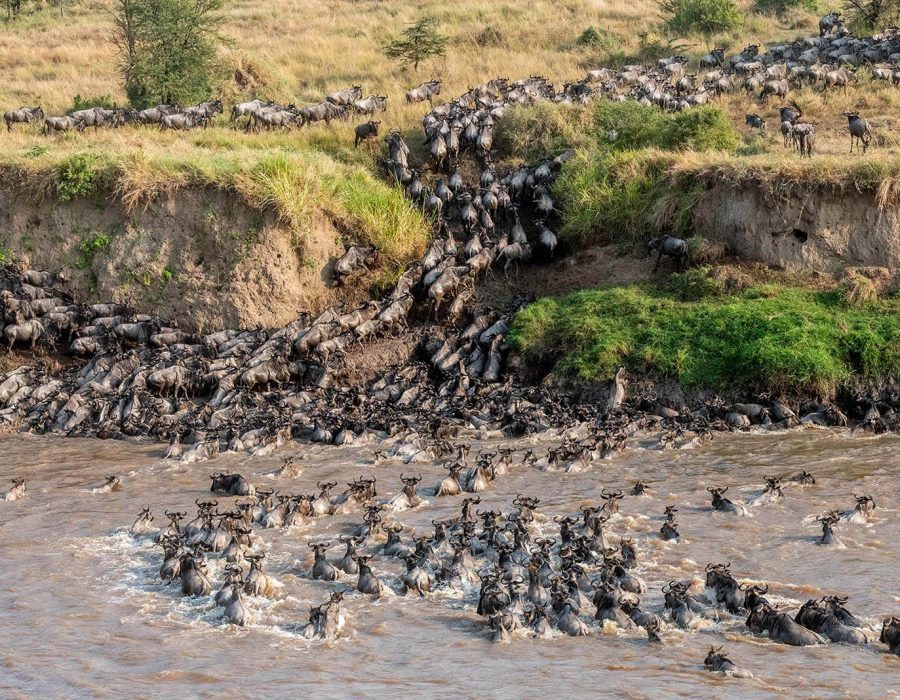
Why do Wildebeests Migrate? Wildebeests migrate in search of food, and water across the plains of the Serengeti and Masai Mara, but also to fulfill their biological clock. They migrate to Masai Mara to mate in July to October and later migrate down to Ndutu to give birth in January to March.
The wildebeest Migration is a full year of activity involving different phenomena and sightings. These beasts bring a lot of action in any place they migrate to. More actions are seen in the Northern Serengeti and Masai Mara as they cross the infested Mara River.
Big cats such as lions, leopards, cheaters, and even scavengers like vultures, hyenas, and silverback jackals follow these herds step by step. Alot of activities is seen during this time.
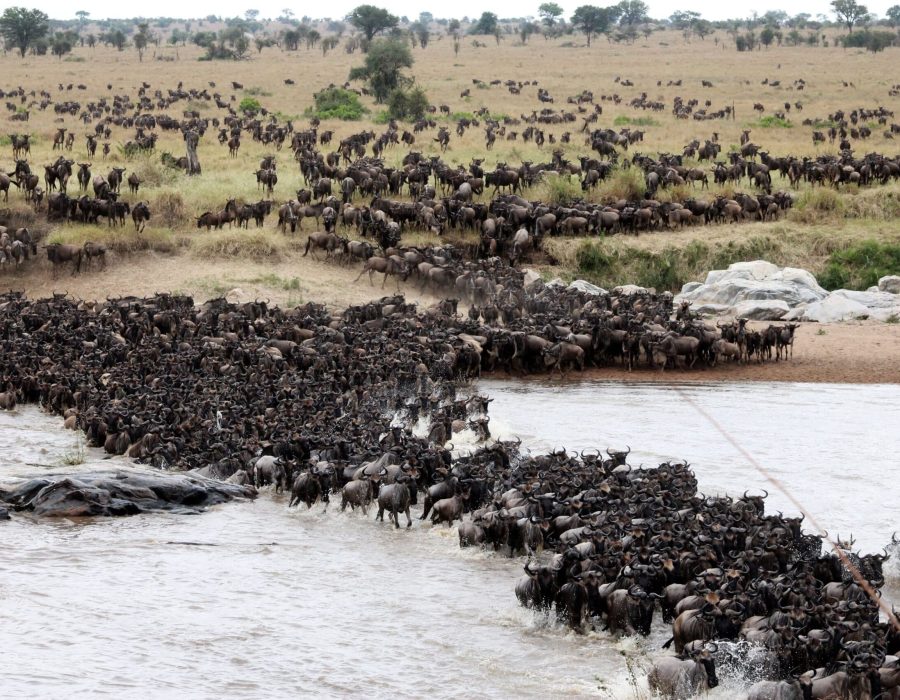
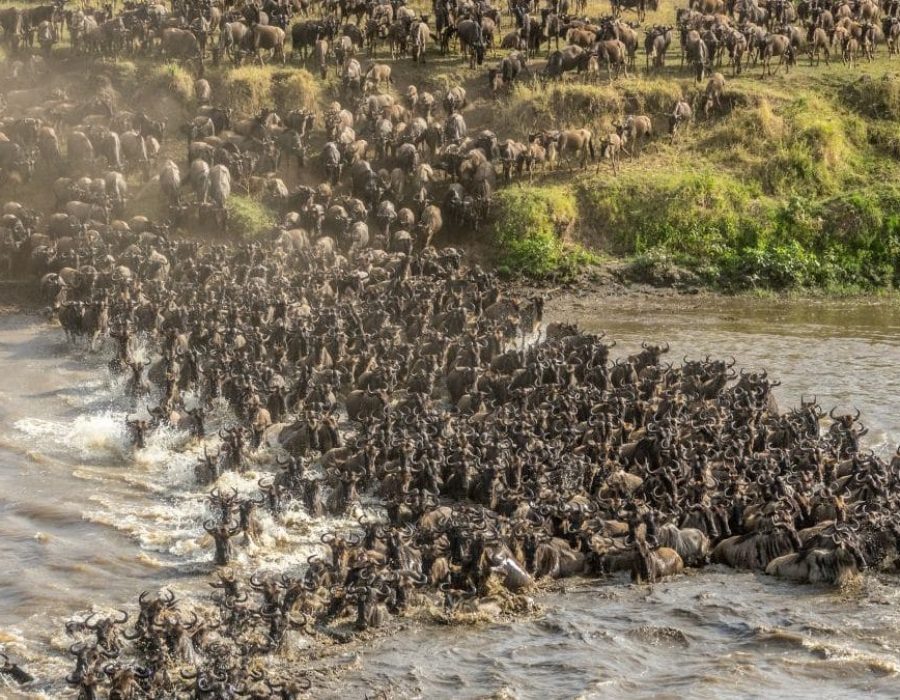
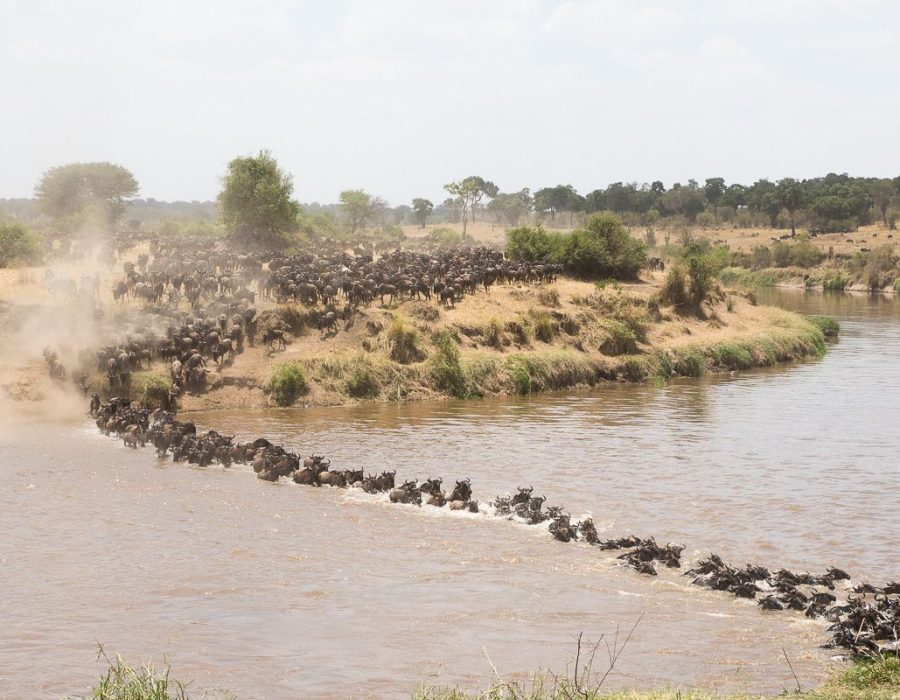
The wildebeests have many crossing points at the Mara River both in Serengeti and Masai Mara. There is one, the Kichwa Tembo Crossing Point, within the Mara North Conservancy. And two crossing points within the Masai Mara National Game Reserve including the Lookout Crossing Point, Sand River Crossing Point, and Serena Crossing Points.
These crossings might not be correct, as some miss crossing at certain points as mentioned above, as these are just guides to let you know of popular crossing points in Masai Mara.
The Mara Triangle is one of the most scenic parts of the Masai Mara. It is located on the western side of the reserve and is a great place to watch the migration in a less crowded environment.
The crossings here are unpredictable, but when they happen, they are spectacular. The river is wide, and the banks are often muddy, making it difficult for the animals to get out. This struggle creates dramatic moments that photographers love to capture.
Talek River is one of the smaller rivers in Masai Mara, but it plays an important role in the migration. Some herds cross this river before reaching the main Mara River. Since the Talek River is smaller, the crossings here are not as dramatic as those at the Mara River, but they are still exciting to watch.
If you want to avoid large crowds, Talek River is a good place to see crossings in a quieter setting.
Kichwa Tembo is another well-known crossing point, located near a famous safari camp with the same name. This area is great for visitors who want a comfortable safari experience while still being close to the action.
The crossings here are not as frequent as in some other areas, but when they happen, they are just as exciting. The best time to visit is from late July to early September.
The Serena area is one of the most reliable places to see the Great Migration crossings. This point is located near the Serena Safari Lodge and is a favorite spot for visitors.
This crossing point is often very dramatic, as the riverbanks are steep, making it challenging for the animals to climb out after crossing. Some struggle and fall back into the river, making it a heart-pounding experience to watch.
Lookout Hill is one of the best places to see river crossings in Masai Mara. This area has high ground, allowing visitors to get a great view of the river below. Here, the wildebeest gather in large numbers before taking the leap into the water.
This crossing point is famous because it offers a clear view of the dramatic action. The sight of thousands of animals jumping into the river, with crocodiles waiting and lions watching from the bushes, is unforgettable.
Paradise Plains is another top location for watching river crossings. It is located near the Mara River and is well known for large herds crossing. Many of the famous wildlife documentaries have been filmed in this area.
The landscape here is open, making it easy to see the action. This spot is perfect for photography because you can capture the wildebeest, zebras, and predators in one frame.
Wildebeest Crossing Points in Serengeti are numbered from number 1 to 10, where numbers 4,7, and 10 are the most popular crossing points for wildebeests in Serengeti.
The wildebeests crossing at number 10 in Serengeti, end up crossing at Sand River in Masai Mara, while numbers 6,7 A and B, and 8 in Serengeti end up crossing at either Lookout or Sand River Crossing Point in Masai Mara. The once that cross at Number 1 to 5 most of them end up crossing at Serena, Lamai Wedge into Masai Mara.
These crossings might not be correct, as some miss crossing at certain points as mentioned above, as these are just guides to let you know of popular crossing points in Serengeti.
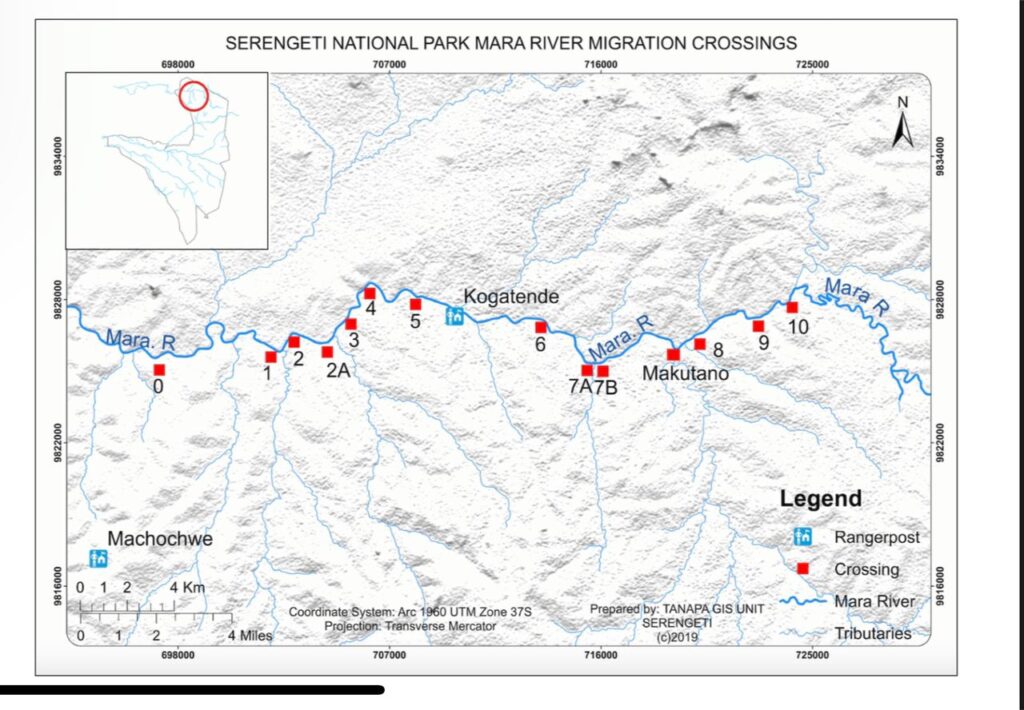
Explore the nearest safari camps and lodges where the wildebeest migrations were seen and spotted. We recommend these wildebeest migration camps and lodges.
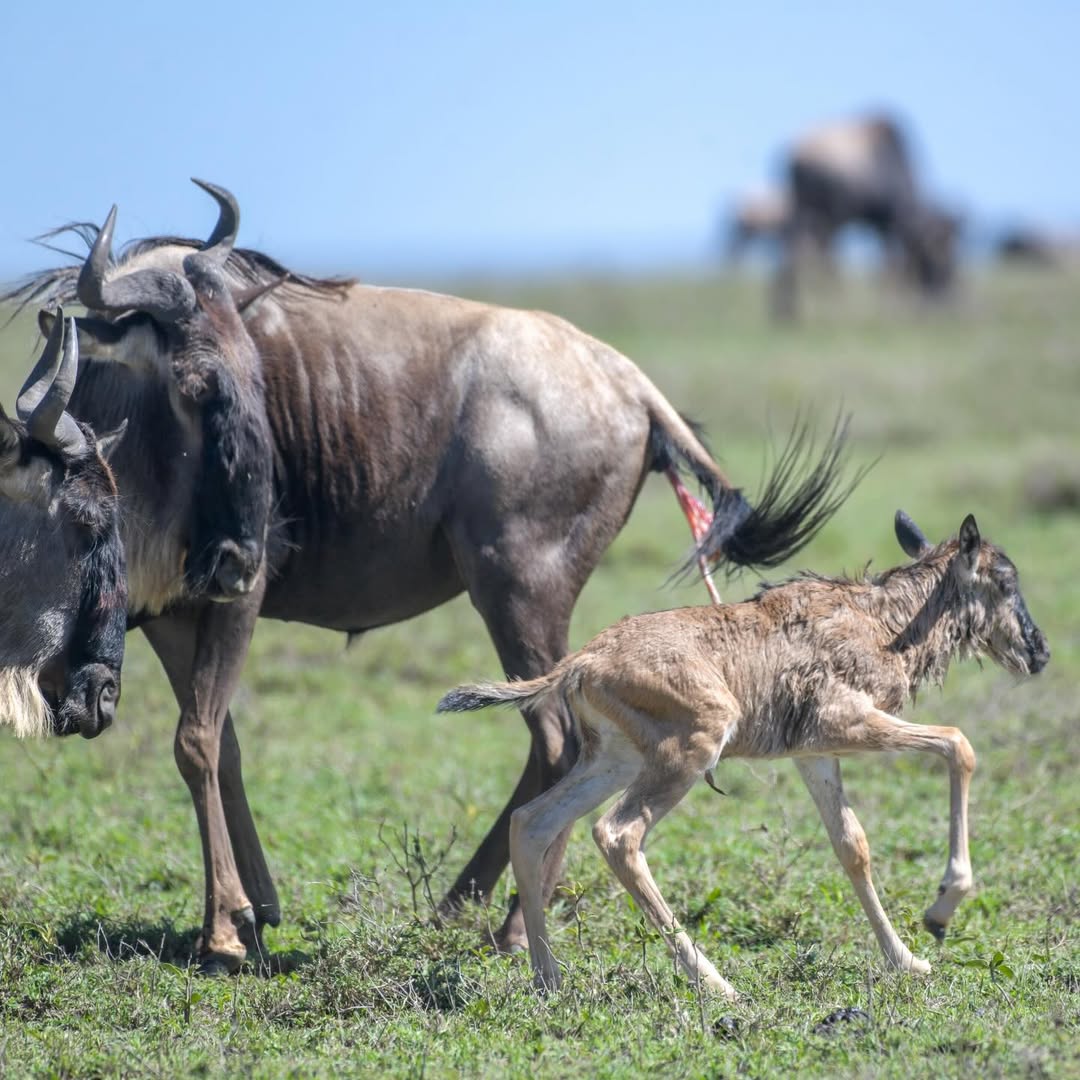
The calving season has started in the Southern Serengeti and Ngorongoro Conservation Area, with the first wildebeest calves now being born...
The Great Migration continues in the Southern Serengeti as large herds of wildebeest and zebras move steadily south following recent rains....
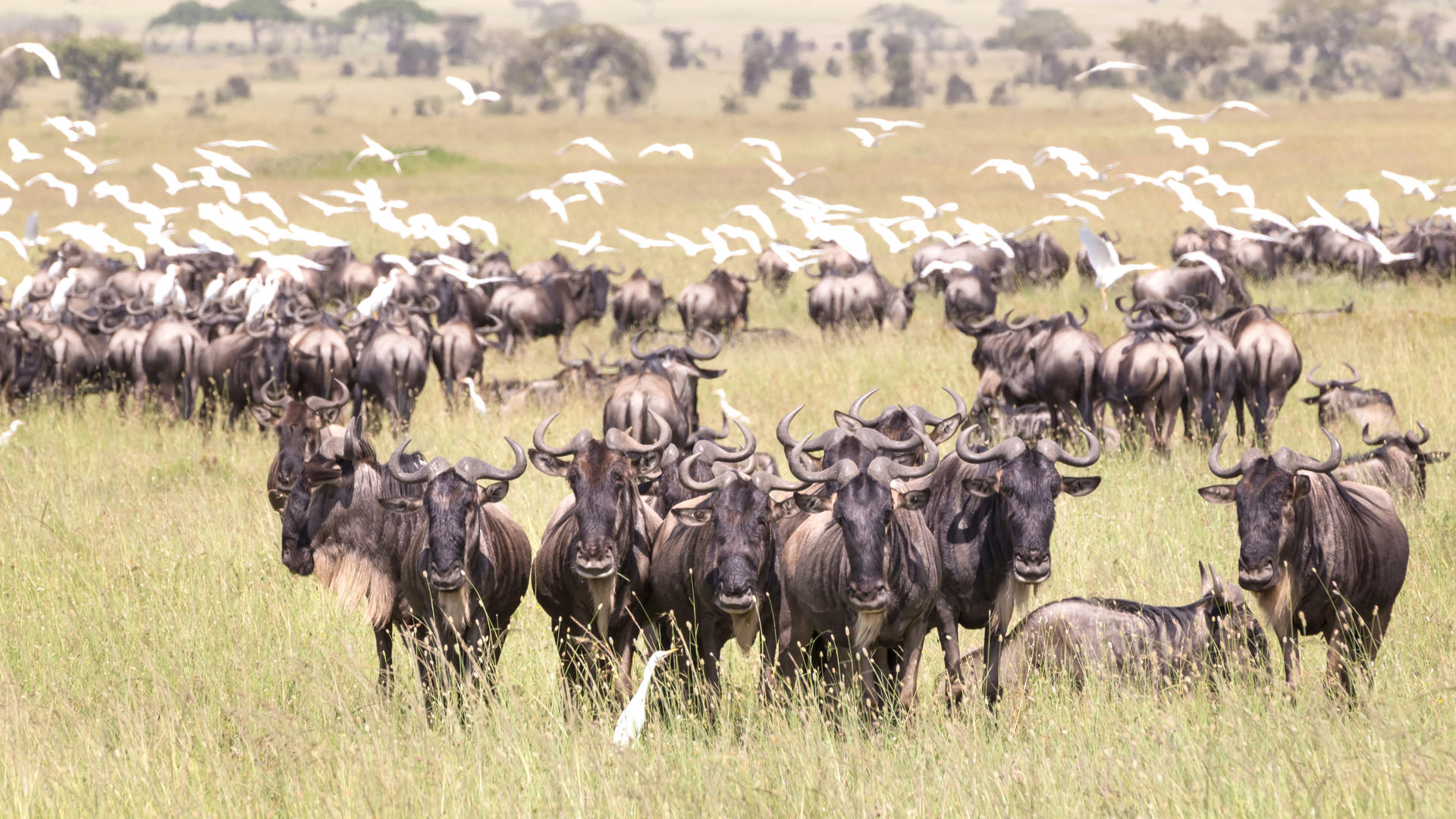
Wildebeest herds continue their steady movement south through the Serengeti, with large groups now seen heading toward the Seronera region. More...
We have had so many people miss availability for their migration safaris in 2025. Contact us now to secure your spot for this amazing spectacle in 2026.
Get notified about new wildebeest sightings